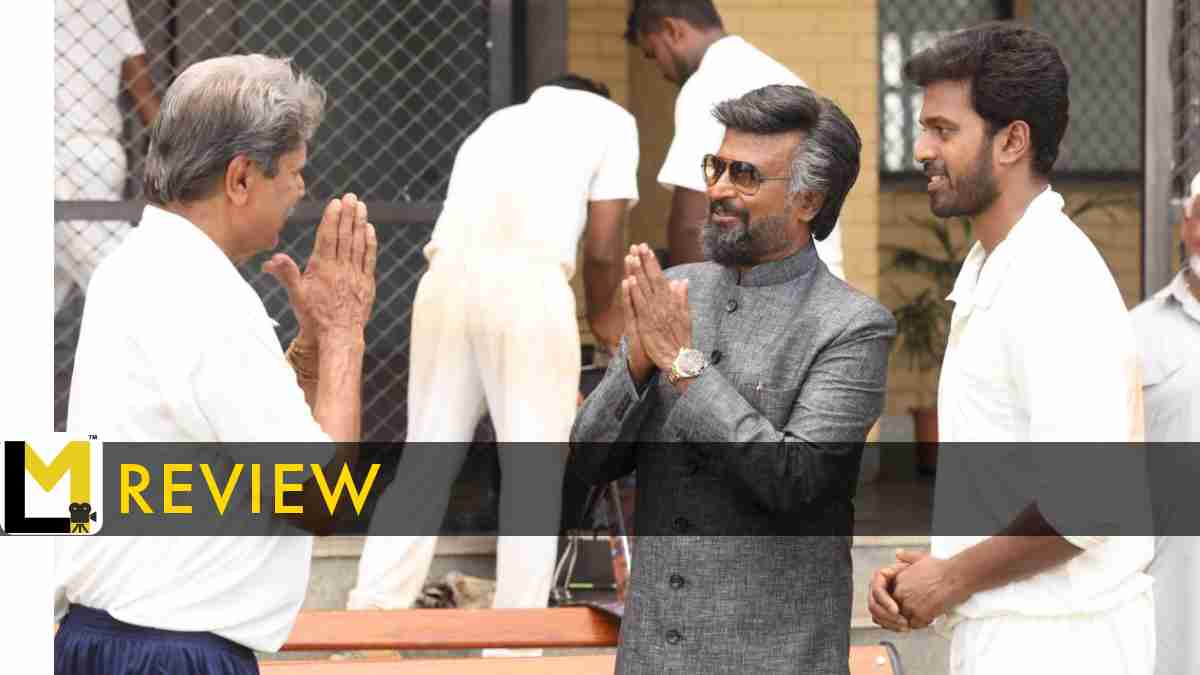When directors like Vetrimaran, Pa Ranjith, Mari Selvaraj, etc., made films that were extremely political, I heard people complaining that it was sort of easy to make these movies as the craft is secondary, and people won’t criticize much about the lack of cinematic quality because of the politics. Well thanks to Aishwarya Rajinikanth’s lousy new film Lal Salaam, I can now confidently counter such arguments. Bombarded with unnecessary cameos, Lal Salaam is a shallow script that wants to talk about communal harmony but has an understanding of the scenario similar to those Hindu Christian Muslim photoshoots you see on Instagram.
The movie is set in 1993, and there is this village in Tamil Nadu that is known for its communal harmony. The Muslims and Hindus of that village have a very peaceful relationship. The efforts of a political leader to create a divide among them on the basis of religion to get votes and how his plans create a ruckus in that space is what we see in Lal Salaam.
The movie’s script is shuttling between the events before and after the riots. The writing is so sloppy that I think even the editor had the same confusion the audience had in distinguishing between the two. The worst part is the broad strokes in the writing. The dialogues are so on your face that you feel Aishwarya and writer-cinematographer Vishnu Rangasamy have assigned the IQ of a five-year-old kid to everyone who is watching the movie. Every character is loud, and some are even literally loud. By the time you reach the end of the film, you will realize that they have taken a very simplistic movie and unnecessarily made it complicated with that back-and-forth narrative.
When the movie opens with the classic Rajinikanth title sequence, along with the tag “special appearance,” I wasn’t really expecting this much coverage. The film relies heavily on Moideen Bhai, and I think Rajinikanth is there more than Vishnu Vishal. And frankly, in many places, his stardom is a burden for the movie, and the scenes they have added to show his Appa/Uppa paasam is ultra cringe. Vishnu Vishal plays this always-angry young man who holds a grudge against Moideen Bhai. Vikrant, as Shamsu, plays Moideen Bhai’s son, and he is also an angry young man but with less footage. The movie’s casting has managed to rope in names like Senthil, Thambi Ramaiah, etc., to make it look like that rural drama. They have even managed to bring in Kapil Dev as himself, and frankly, the damages that had happened on a script level can’t be fixed with cameos.
The whole movie feels like an effort to save a script that is extremely peripheral. The spoon-feeding and schooling tone of the writing, asking people not to fight in the name of religion, is intentionally great, especially considering the current political climate. But you need to have some nuances in the writing to make the viewer feel the seriousness of the topic. By dismantling the linear story, Aishwarya Rajinikanth manages to achieve nothing, and all she has created is confusion. The set pieces and events feel very forcefully included in the narrative, and some of the “goodness” twists in the end are easily predictable due to the poor packaging in the beginning portions. AR Rahman is the movie’s music director, and while I was watching the film, none of the songs managed to make a good impression.
Lal Salaam can use its base idea to promote itself as a pertinent cinema. But in terms of craft and writing, the movie is an utter failure, and looking at the extended special appearance Mr. Rajinikanth made in this movie, it’s a shame that they couldn’t come up with content that could have used his stardom to get a wider reach.
Bombarded with unnecessary cameos, Lal Salaam is a shallow script that wants to talk about communal harmony but has an understanding of the scenario similar to those Hindu Christian Muslim photoshoot
Green: Recommended Content
Orange: The In-Between Ones
Red: Not Recommended


